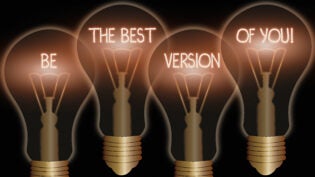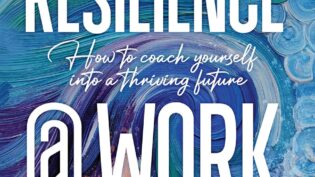
So when answering the question: “Should I write a book?” I always start with Answer #1:
Answer #1
Write that book. You are a complete sovereign being and you have agency to do exactly what you like, no matter what anyone, including me, has to say.
Tell your story.
I mean that sincerely.
Don’t ever let anyone talk you out of doing something your soul is called to do. You decide. Period.
Answer #2
If you have taken my advice in Answer #1 and you are wanting to write a book that is intended as a commercial venture, there are some additional frames that might make your planning and decision process easier.
Frame 1: Writing a book takes a lot of dedicated timeEach book I have written has taken about 2-3 years longer than originally anticipated. Mind you, I write business books about methods I use with my clients, so there is a big period of testing and trying the ideas and tools before writing a book. Still, I have had stops and starts with proposals rejected because they were delivered to publishers too early, and the idea was not ripe enough for a whole book.
Even if you are writing a fiction book or memoir, and publishing on your own, getting the story flow and structure defined, choosing your stories, conducting research or interviews and prepping your internal emotional and productivity habits all contribute to the process of writing a book.
Can you crack out a book in a weekend? Sure you can. In my experience, a book needs a lot more time to simmer and process if it is something that you want to endure and be a truly useful tool for your readers.
There are some rare writers like my friend Rohit Bhargava who has such a productive and honed creative flow that he can write really quality books in a shorter time than most. That said, he owns a book publishing business, so he is very familiar with the process of design and execution.
Frame 2: Writing a book can take a lot of (upfront) money
There are a lot of parts of getting a book published and sold that require a financial investment. It is extremely helpful to have both a developmental editor (someone to help you with the structure and frame of the book) and a copyeditor (someone who will pull apart and fix your spelling/grammar/syntax errors). You also need a book cover designer, book layout designer and then potentially a whole slew of folks to market the book if you want your book to make money and create business opportunities.
There is also a component of financial displacement, a concept my friend Charlie Gilkey talks a lot about in his work at Productive Flourishing: When you spend a lot of time on a creative endeavor that does not make you money immediately, you may not have time to market and/or deliver products or services that are your main source of income. So in addition to investing in help to write your book, you also need to sock away some money or design an offering model that can be marketed or delivered by others.
Most people with a traditionally publisher will not make enough on a book advance to make up for the investment and financial displacement required to write a book.
Frame 3: Writing a book is not the same as selling a book
When I got my first book deal with Penguin/Portfolio, I had a meeting with Adrian Zackheim, the founder of the imprint. I was very intimidated by his experience, since he edited Good to Great as well as thousands of other books.
I came armed with 20 questions about book marketing, selling and positioning. I asked the questions, then said, “What advice would you give a first-time author like me?”
He paused. “Write the damned book, Pam.”
That helped me separate the tasks of writing, which requires a significant internal deep dive into my creative zone, and the tasks of marketing selling a book which requires a huge amount of external strategizing, connecting and promoting.
The truth these days is you have to think about the salability of the book far ahead of writing it. Publishers are choosing to invest in “sure bets,” authors who might already have a huge and passionate audience who are primed to buy a book.
And there are so many more great books being written!
Recently, four good friends of mine had books come out on the same day: Jonathan Field’s Sparked, Dorie Clark’s The Long Game, John Jantsch’s The Ultimate Marketing Engine and Mike Michalowicz’s Get Different.
Each author spent years, tons of resources and time to develop their frameworks and books. All are familiar and friendly with each other and often cross-promote each others’ work.
That said, all had to have differentiated and pre-planned marketing strategies that allowed them to get a critical leap in sales in the first week of publication, while tap dancing around their peers who were all encouraging a similar audience of readers to purchase their book.
I like to look at the long game of how the book fits into your business model, which is truly where you recoup the investment and sell the greatest number of books. My friend Michael Bungay Stanier has now sold upwards of 700,000 copies of his book The Coaching Habit (backed by over 6,000 4.5-5-star reviews) which was helped by an excellent marketing plan, but also because ongoing book sales were built into his business model.
Frame 4: A book can be a tremendously helpful entry point for a new customer in your business
As my last example above demonstrates, a book can be a tremendous business development tool.
Where financial return is a key decision criteria for writing a book, I recommend that you think carefully about the following things:
1. Where this book fits in your current business model
2. Where you might create specific offerings supported by reader enthusiasm for the book
3. How you can build book sales into your offerings (like bundling with speaking fees, including in online programs or making part of a consulting engagement)
4. If this book does not directly align with your current and future audiences, markets, products and services, how much energy will you displace creating marketing and sales channels just for the book? Will this displacement generate enough revenue to be profitable against the expenses required to build it?
Before writing my most recent book, The Widest Net, I thought long and hard about these four questions. I know that I will center my business offerings for the next 5-10 years based on the model, which is intentionally rich with strategy as well as many concrete business frameworks that can be extended by groups classes, business planning retreats, toolkits, certification programs and consulting offerings.
As I shared in Answer #1, if you want to write a book, don’t let anyone stop you.
To get the most value and ease from the process, I hope these frames provide some helpful context.












